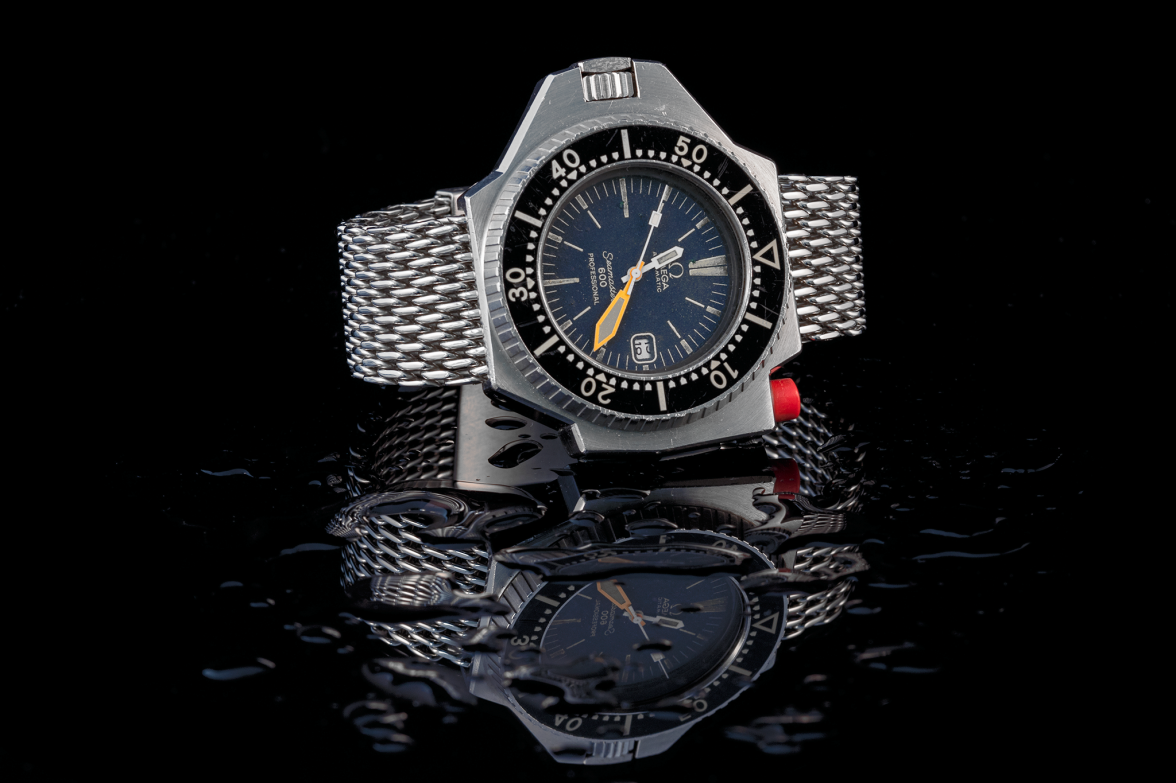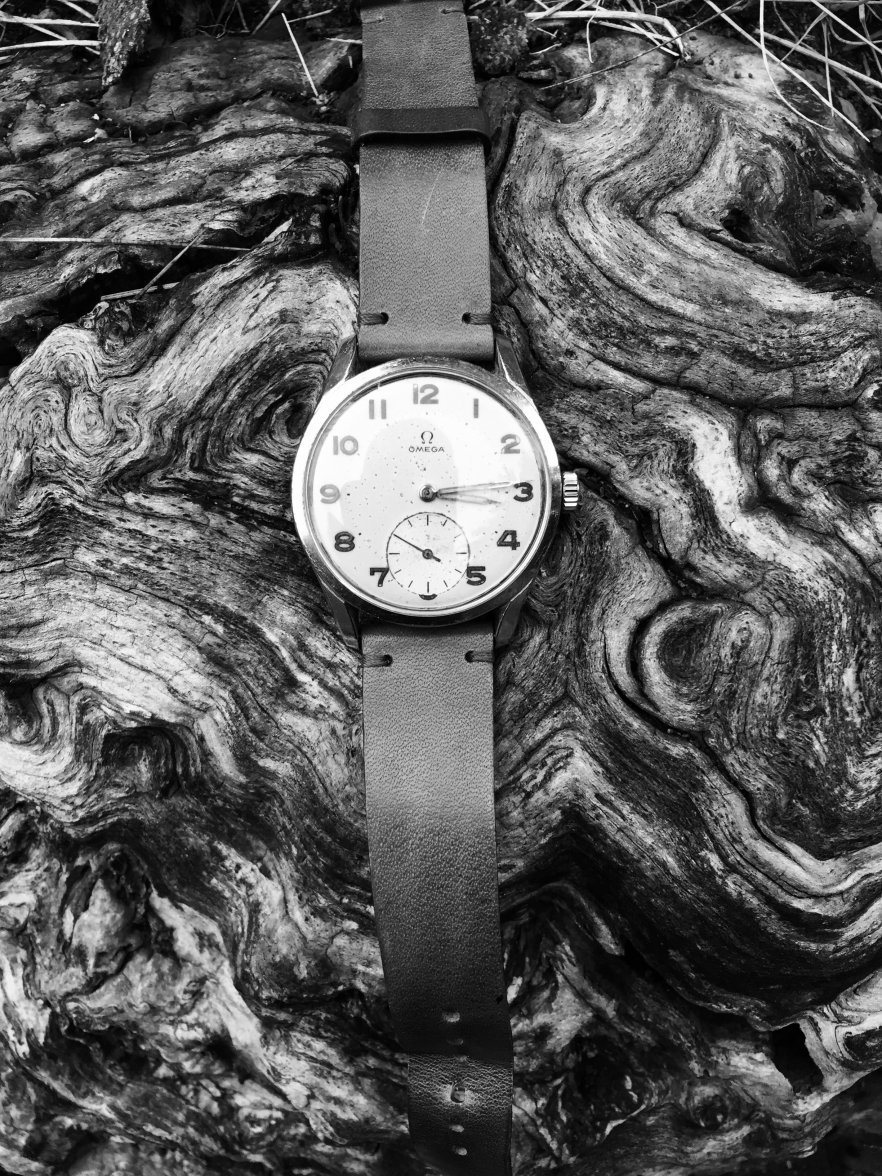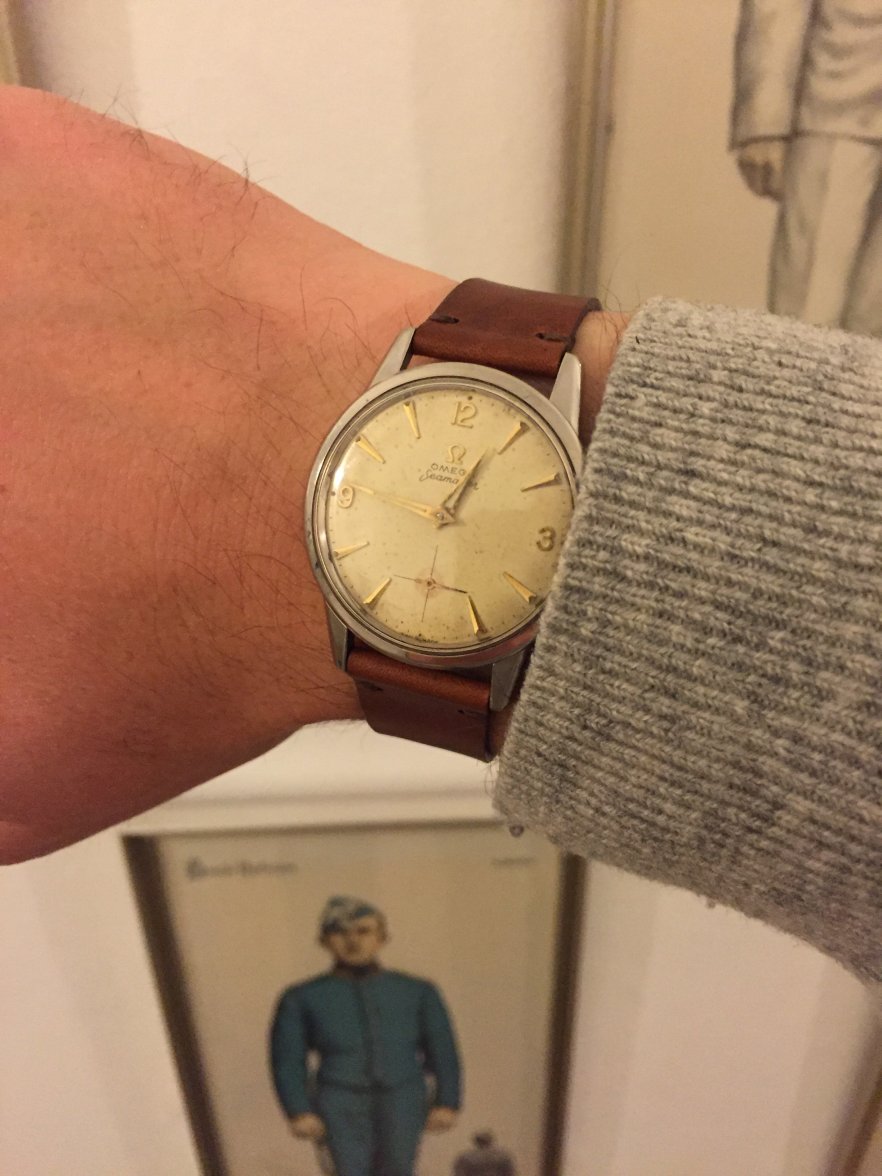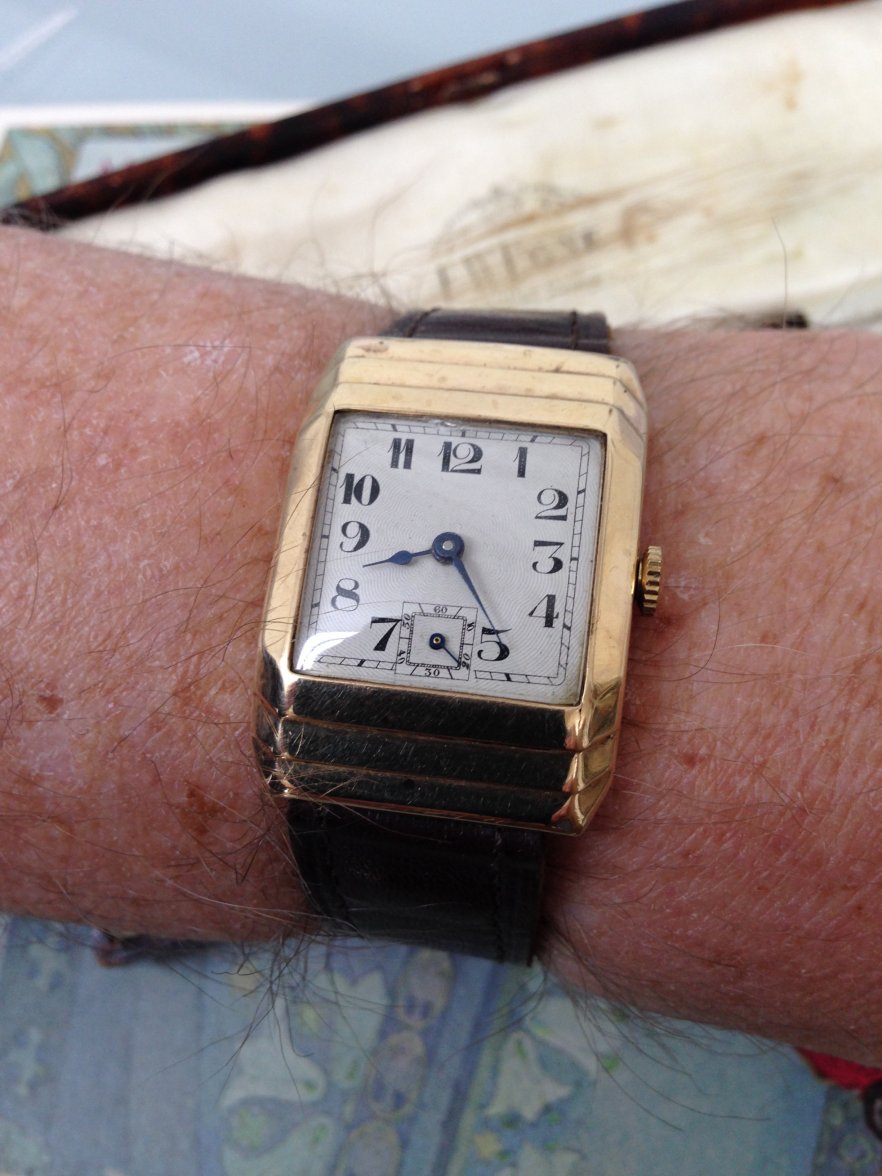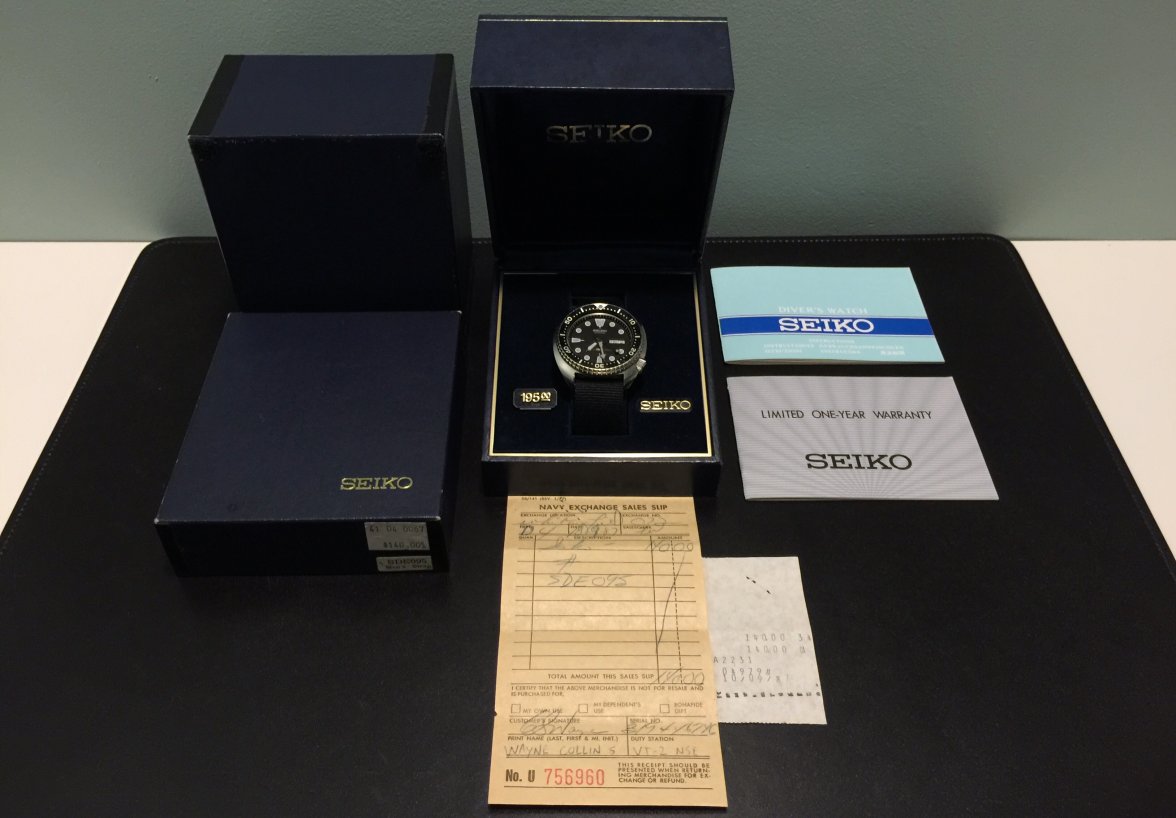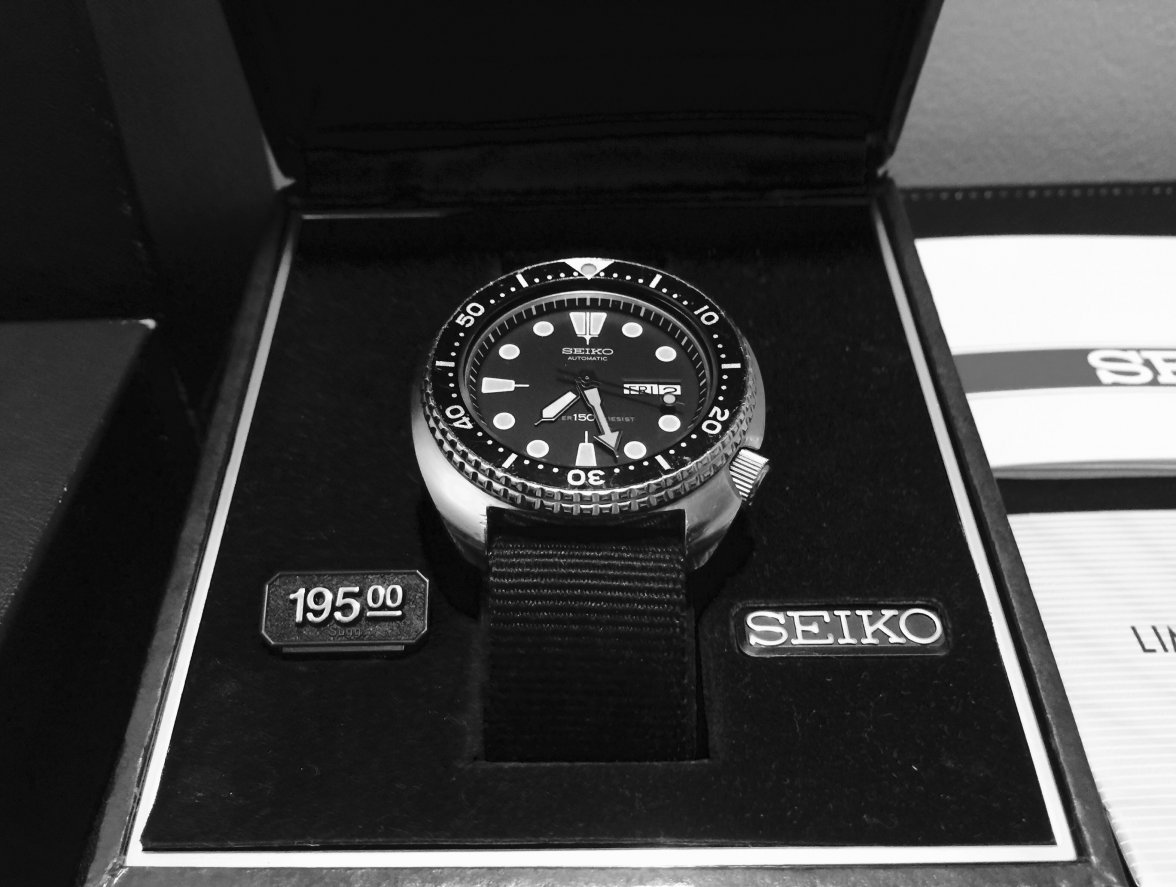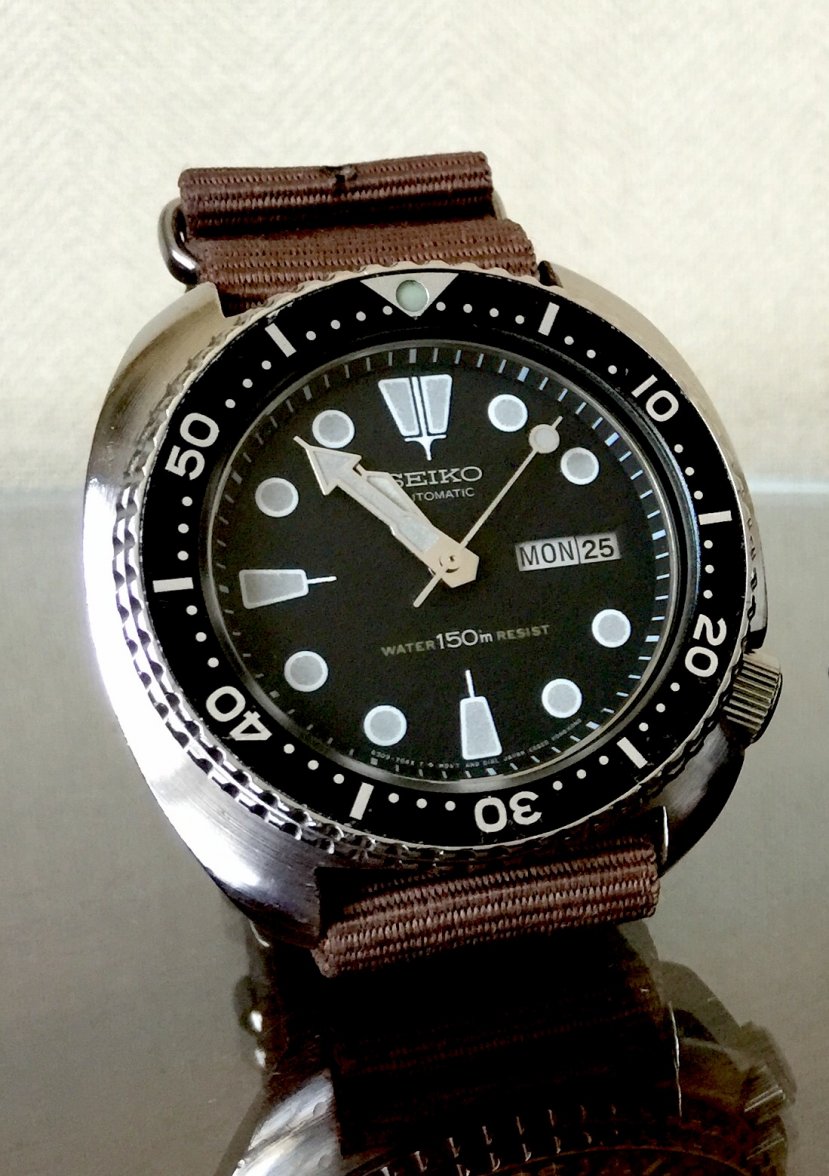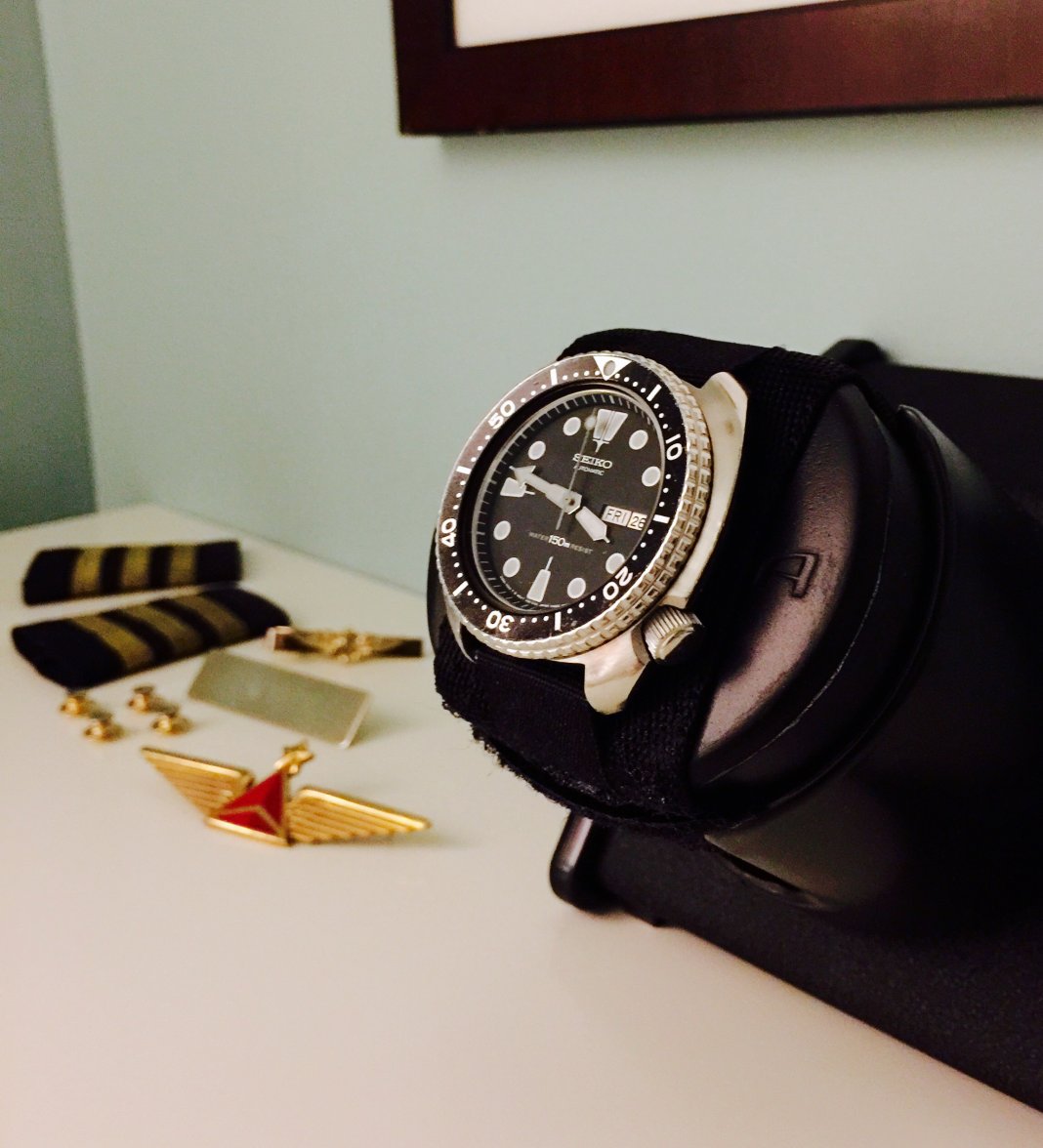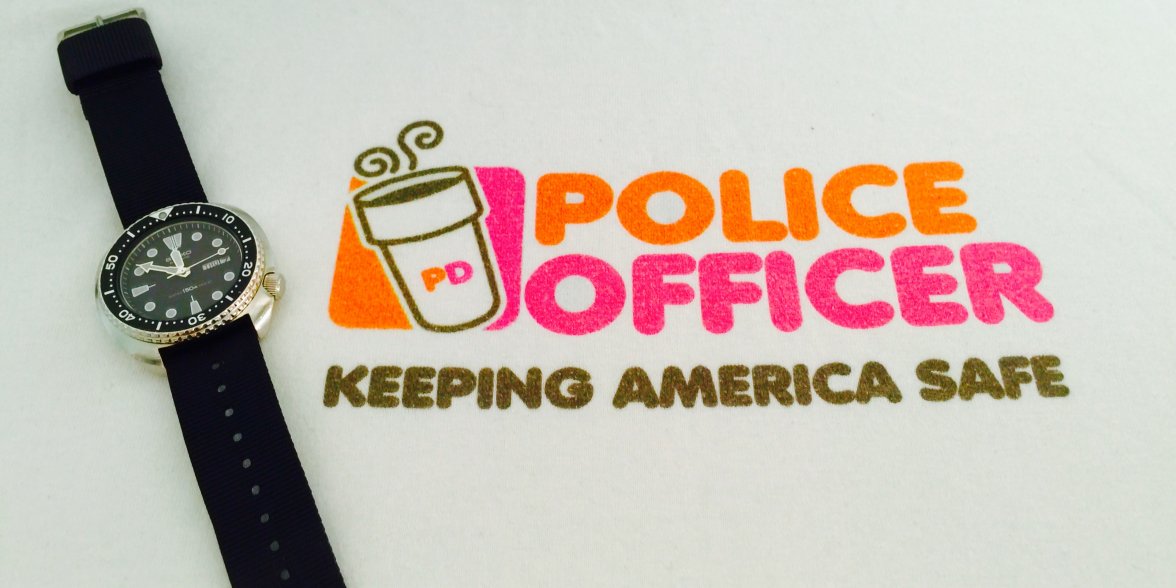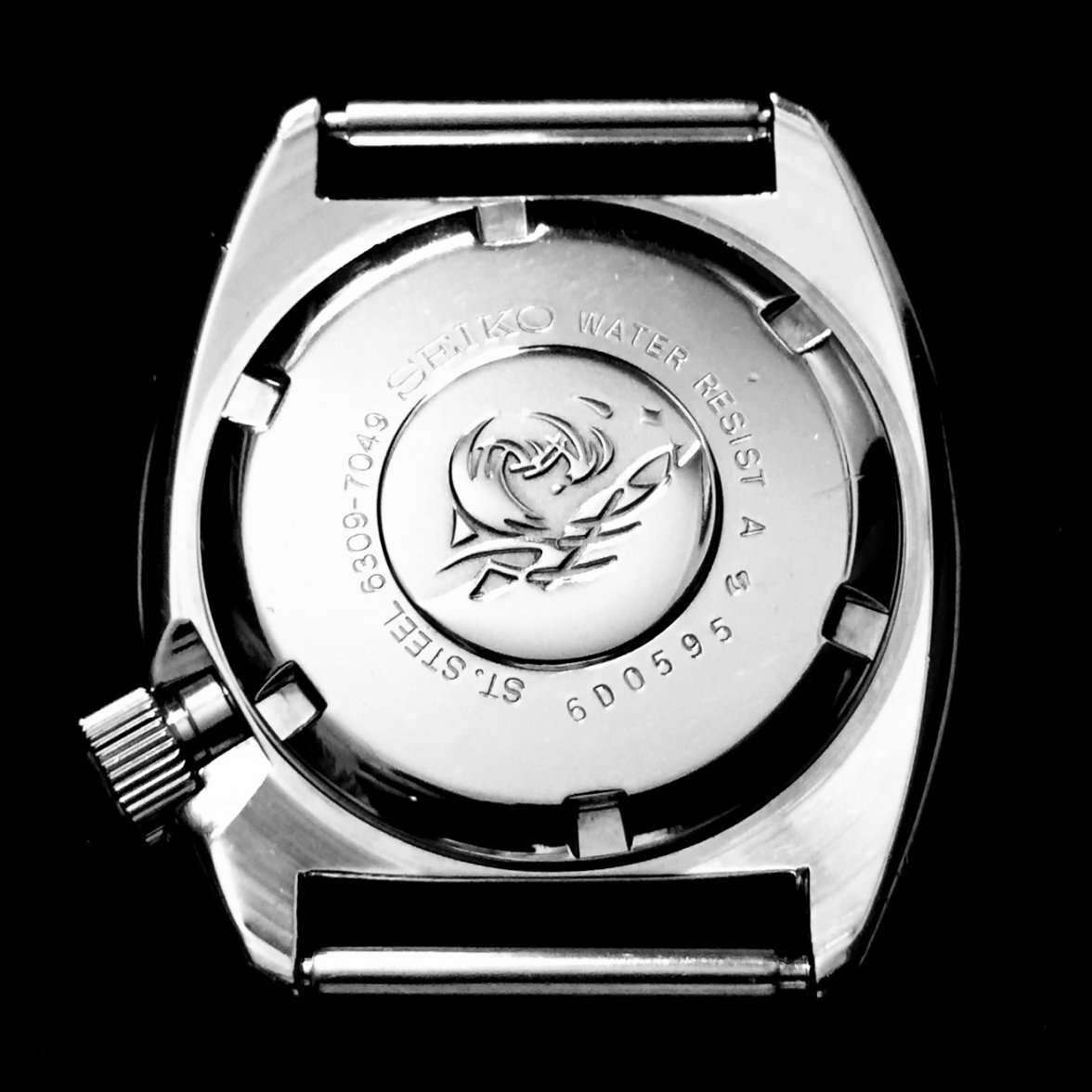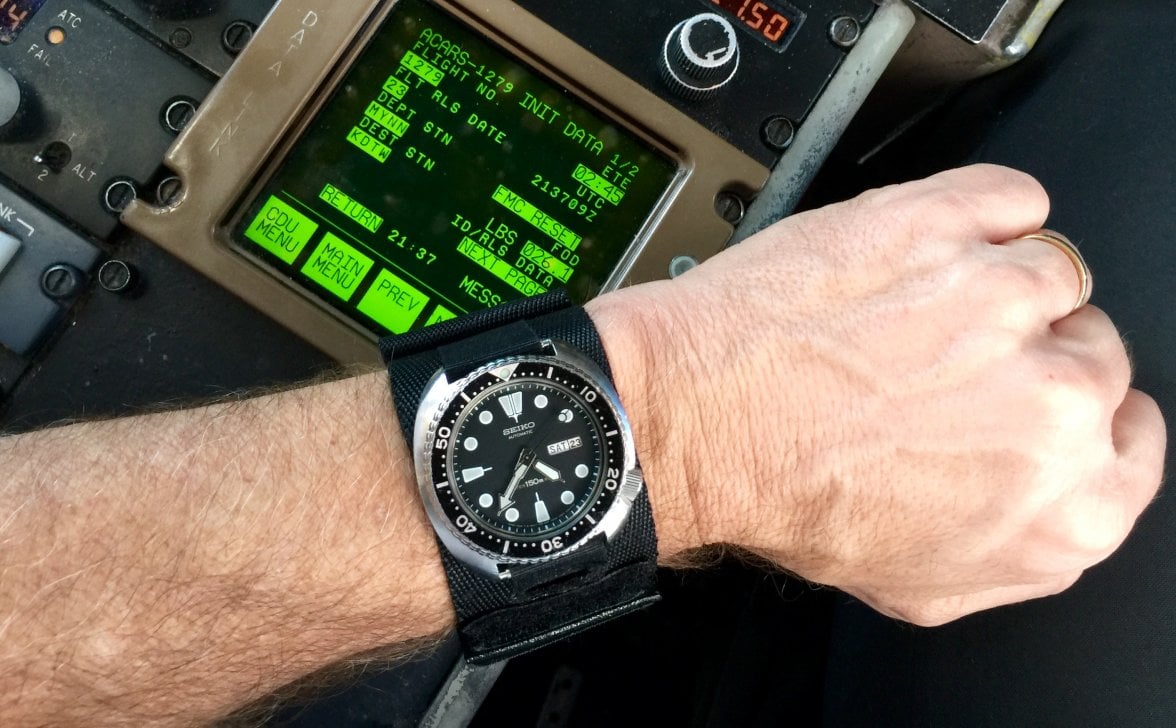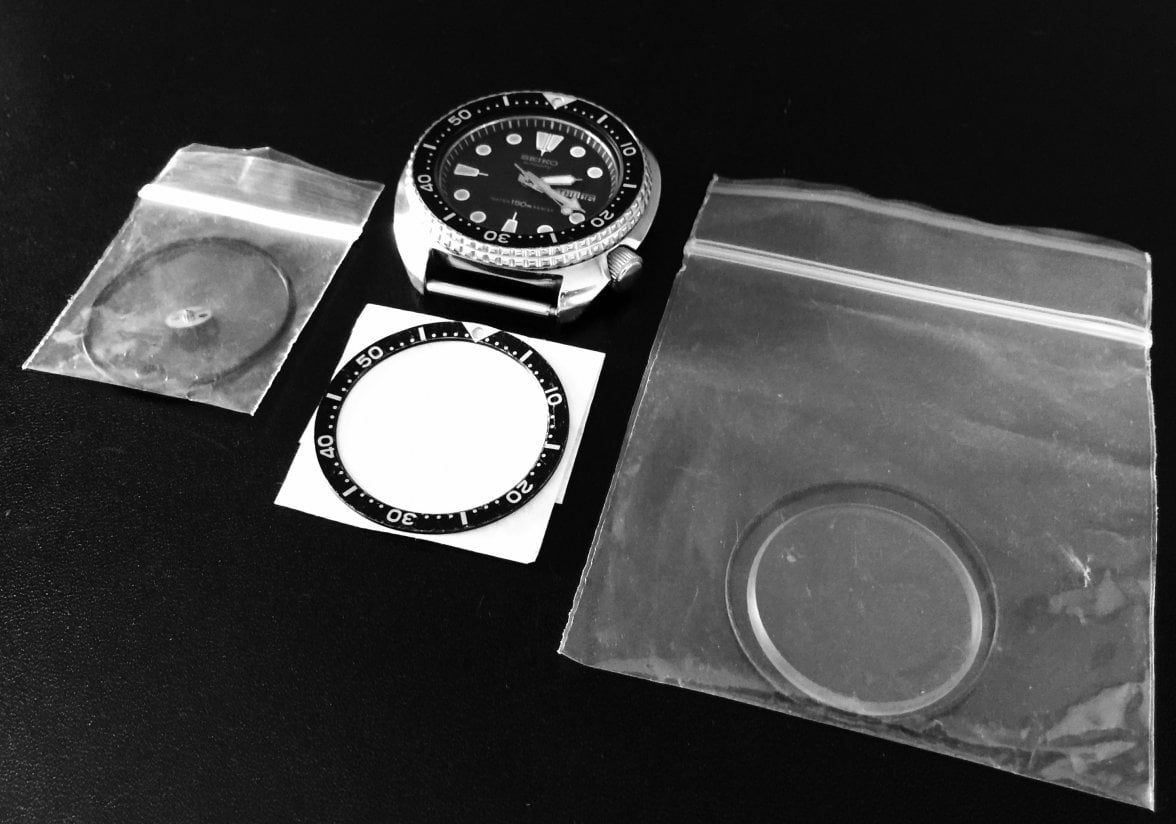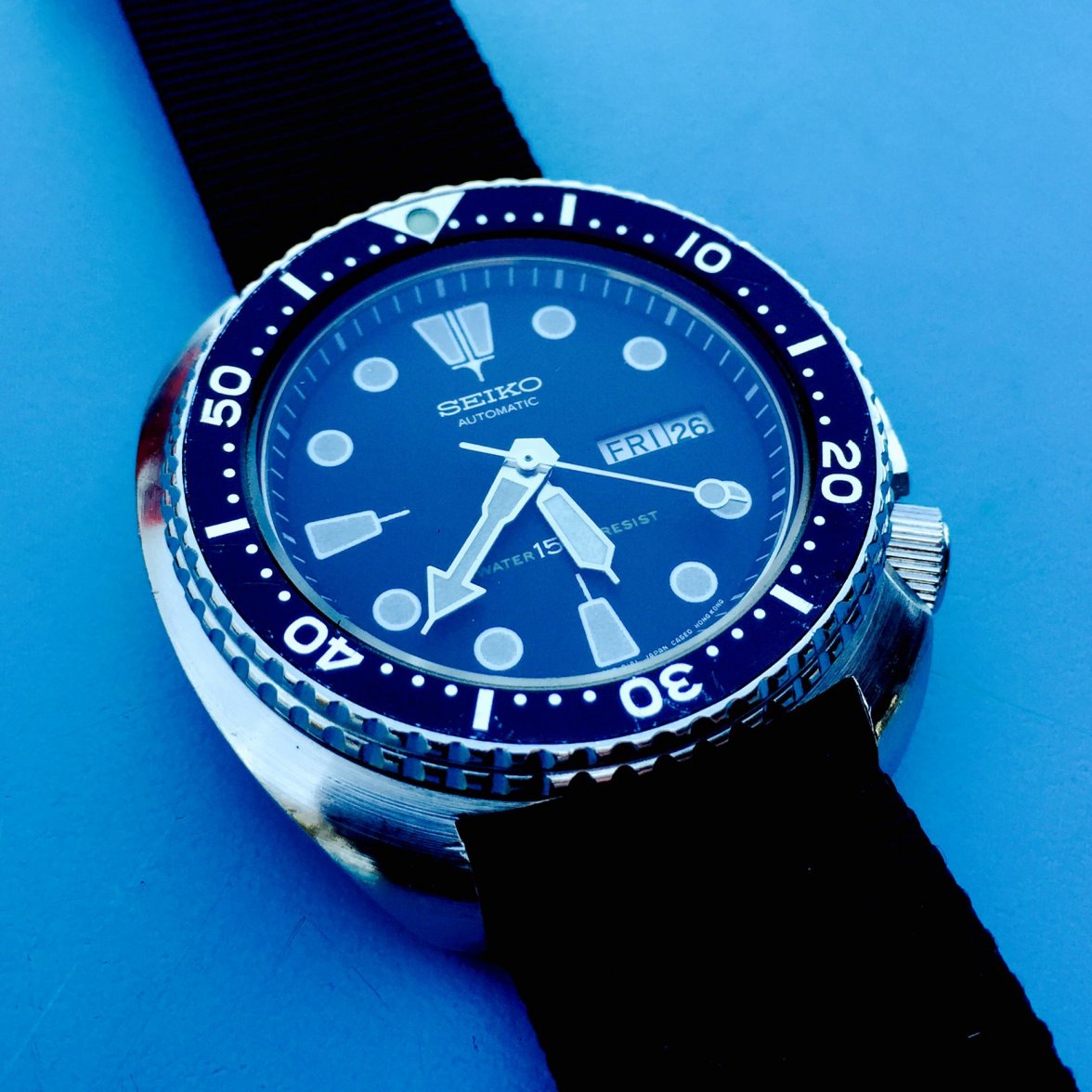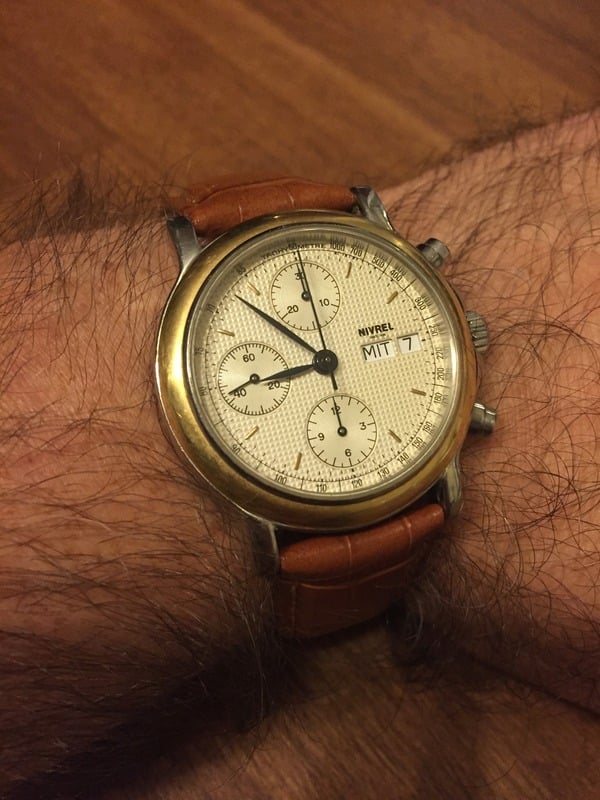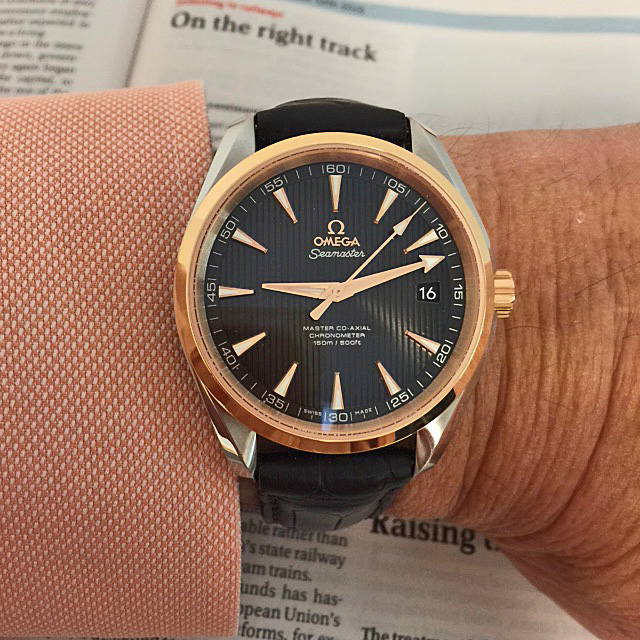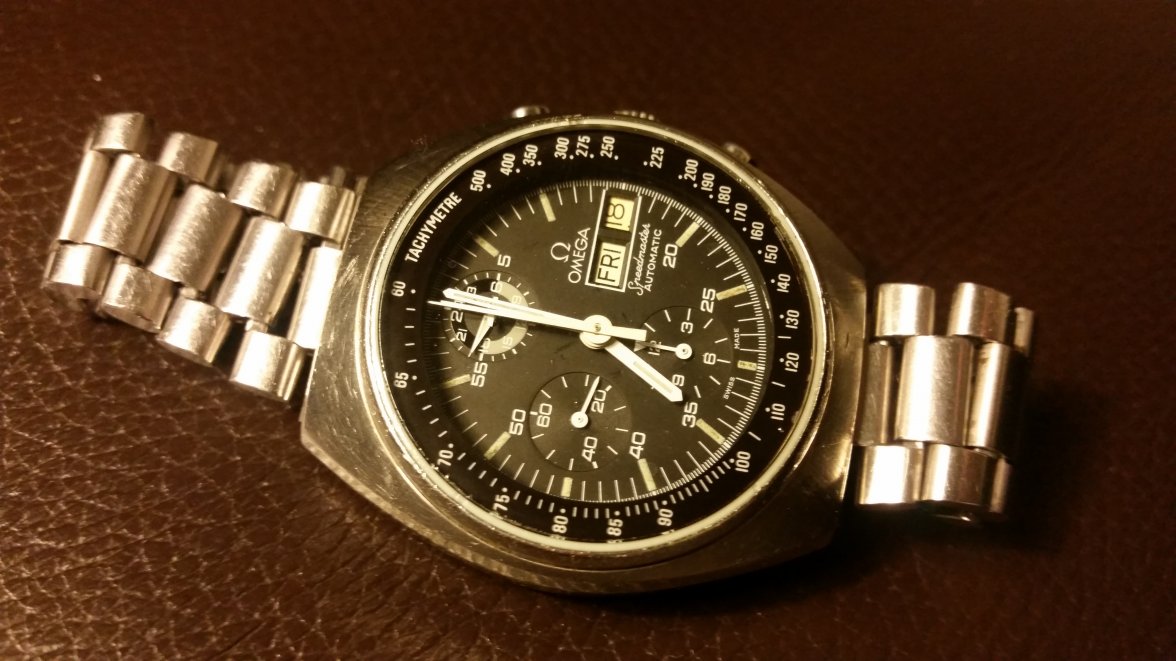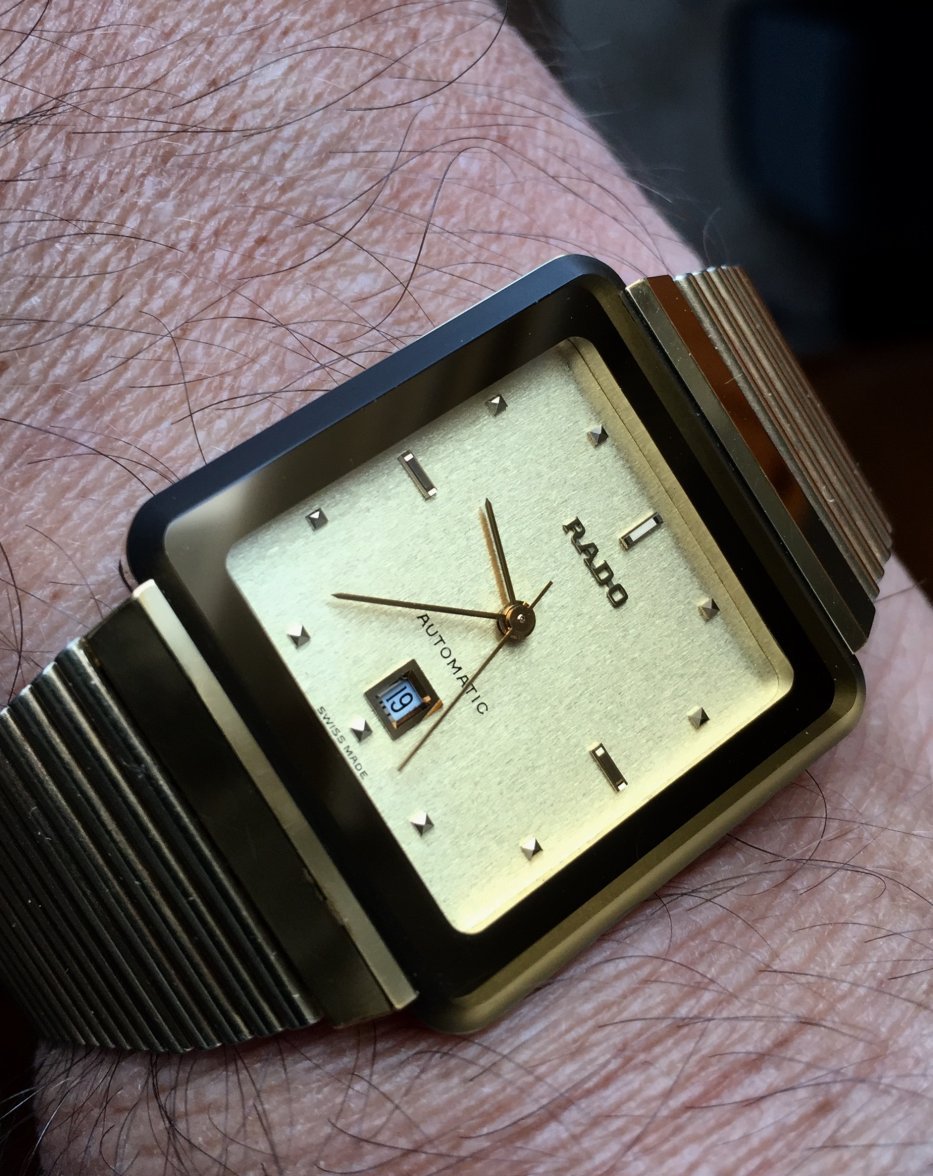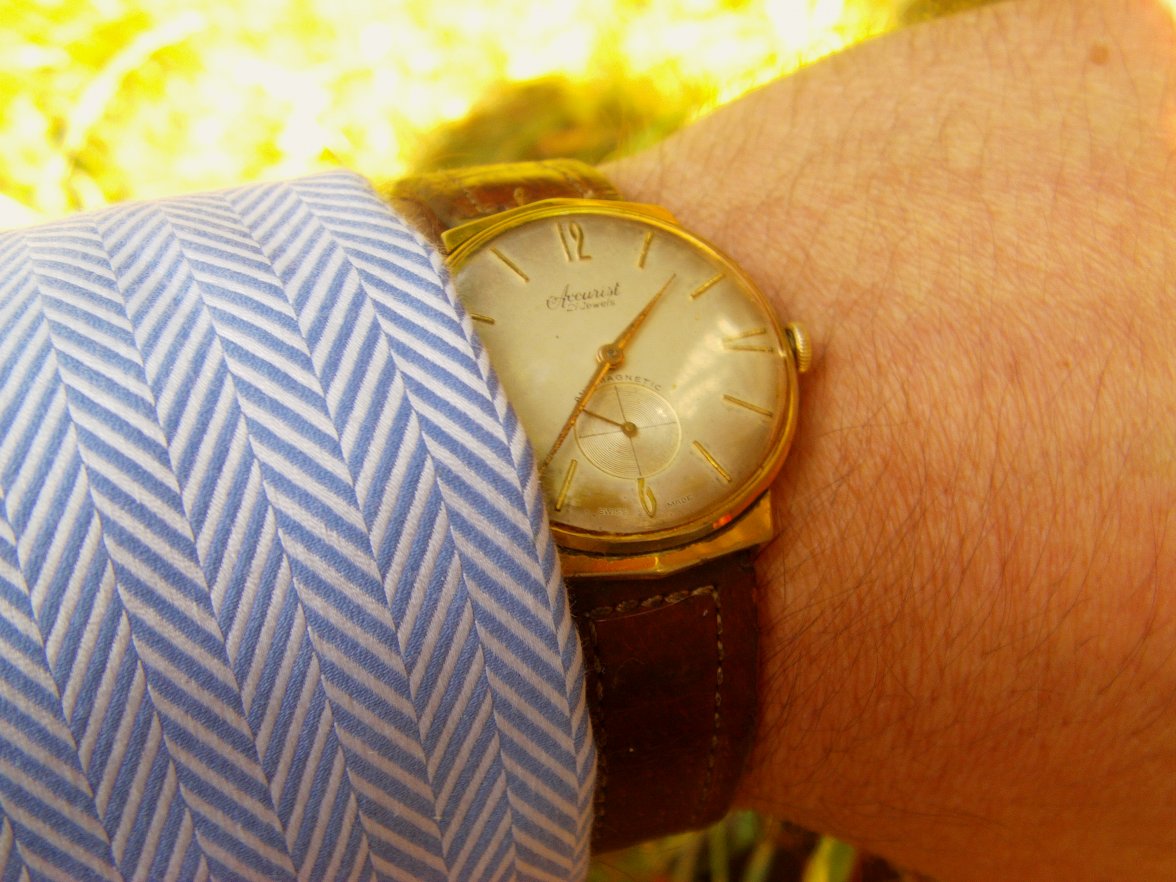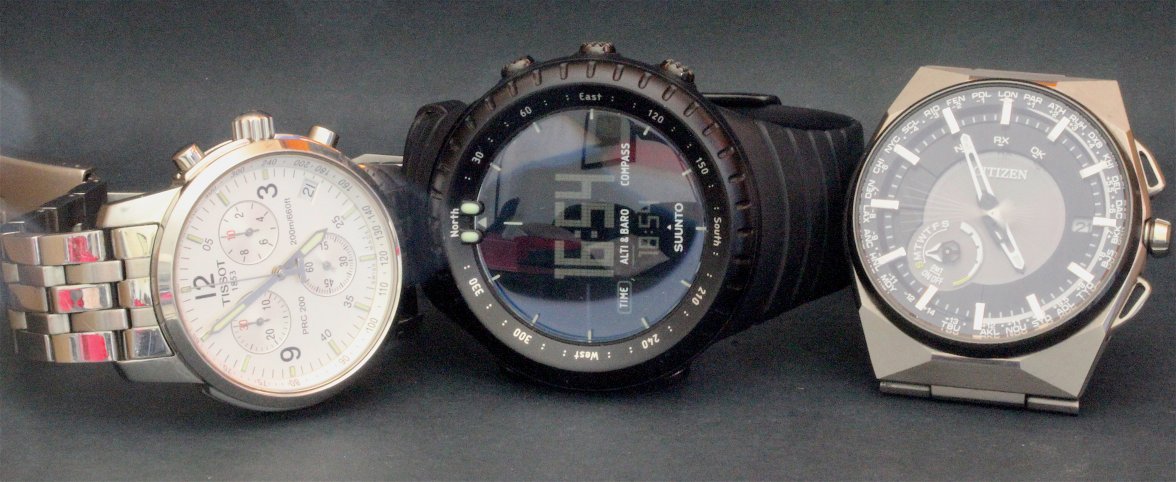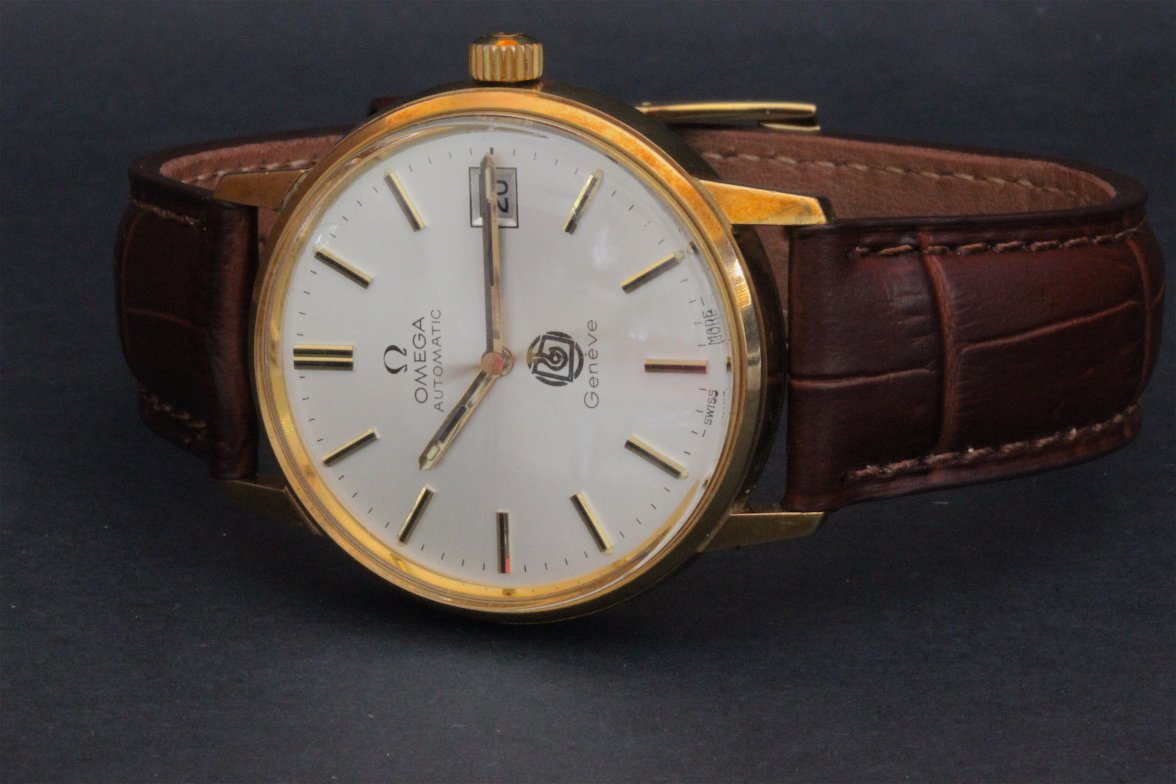dialstatic
·This thread I like! My most sentimental watch is the PloProf that belonged to my dad. The backstory is as follows.
In the early 1970s, my dad took up a new hobby: scuba diving. It was still the early days of scuba diving as a recreational activity: the Professional Association of Diving Instructors had only been founded five years or so before. He joined a Dutch diving club and whenever they got the chance, the divers and their partners traveled to the Mediterranean for diving (Saint-Aygulf, Tenerife etc.). My dad was in his late twenties at the time and, like the other guys, felt invulnerable.
This often led to seriously reckless behaviour, which at one point resulted in a British diving team referring to the Dutch guys as the 'suicide divers'. This was not entirely incorrect: they would often descend to depths in excess of 80 meters whereby they would actually include their reserve air supply in their dive planning to be able to stay at depth longer (effectively leaving them without a reserve). It was common for them the drink heavily on the nights before diving, which all divers know is a (very) big no-no. They commonly dived without buddies (leading to one of them only finding the exit of a cave system at the very last minute) and in prohibited locations (leading to several being hospitalised after having been repeatedly swept up against sharp, barnacle-encrusted rocks).
In June of 1974, my dad thought is was time for a serious dive watch, and purchased the PloProf. He was wearing it in February of 1976 when he and his buddies went diving off the coast of Mallorca. After an uneventful dive, my dad was making his final decompression stop. But because he was fooling around with something he found on the seabed (a lobster, I believe), he didn't notice he was hovering at an angle (his feet about 1 meter higher than his head). Soon after boarding the boat, he began to feel ill. He and his buddies recognised the symptoms quickly enough: decompression sickness ('the bends') was setting in. Unfortunately, there was no decompression chamber on the island at the time. But flying to a location where he could be treated, was very risky (possibly even prohibited) because cabin pressure is even lower, thereby exacerbating the problem.
My dad was slowly getting worse, and they all knew it would likely be fatal if they didn't act. His buddies bough tickets to The Netherlands and snuck my dad aboard the airplane under the excuse that he was severely drunk (which, these days, would be a pretty poor excuse as it would get you banned from the plane). About halfway through the flight, they notified the cabin attendant of the real nature of the situation. An ambulance was standing by at Schiphol when they landed. By that time, my dad had lost consciousness and slipped into a coma. After treatment in a decompression chamber, he eventually came to, but was fully paralysed from the neck down.
Days later, he felt a tingling sensation, first in his toes. Gradually, feeling came back to his entire body, although he had to learn to walk again. He eventually made a full recovery, which surprised even his doctors. He never dived again, married my mother, and they had me in late 1977.
When I expressed an interest in diving in my early twenties, my dad gave me the PloProf that he was wearing during the accident as a tale of caution against reckless behaviour. I guess it worked: the watch reminds me that I very nearly was never born, and when began diving myself I was alsways obsessively concerned with safety. It also sparked my interest in watches in general, and in 1970s Omega sports watches in particular.
This is the story as it was told to me almost two decades ago, as far as I can remember. I'm very fortunate in that both my mom and dad are still alive, so I'll fact check when I see them this week and update if necessary. This is one watch that you'll have to pry from my cold dead fingers ;-)
In the early 1970s, my dad took up a new hobby: scuba diving. It was still the early days of scuba diving as a recreational activity: the Professional Association of Diving Instructors had only been founded five years or so before. He joined a Dutch diving club and whenever they got the chance, the divers and their partners traveled to the Mediterranean for diving (Saint-Aygulf, Tenerife etc.). My dad was in his late twenties at the time and, like the other guys, felt invulnerable.
This often led to seriously reckless behaviour, which at one point resulted in a British diving team referring to the Dutch guys as the 'suicide divers'. This was not entirely incorrect: they would often descend to depths in excess of 80 meters whereby they would actually include their reserve air supply in their dive planning to be able to stay at depth longer (effectively leaving them without a reserve). It was common for them the drink heavily on the nights before diving, which all divers know is a (very) big no-no. They commonly dived without buddies (leading to one of them only finding the exit of a cave system at the very last minute) and in prohibited locations (leading to several being hospitalised after having been repeatedly swept up against sharp, barnacle-encrusted rocks).
In June of 1974, my dad thought is was time for a serious dive watch, and purchased the PloProf. He was wearing it in February of 1976 when he and his buddies went diving off the coast of Mallorca. After an uneventful dive, my dad was making his final decompression stop. But because he was fooling around with something he found on the seabed (a lobster, I believe), he didn't notice he was hovering at an angle (his feet about 1 meter higher than his head). Soon after boarding the boat, he began to feel ill. He and his buddies recognised the symptoms quickly enough: decompression sickness ('the bends') was setting in. Unfortunately, there was no decompression chamber on the island at the time. But flying to a location where he could be treated, was very risky (possibly even prohibited) because cabin pressure is even lower, thereby exacerbating the problem.
My dad was slowly getting worse, and they all knew it would likely be fatal if they didn't act. His buddies bough tickets to The Netherlands and snuck my dad aboard the airplane under the excuse that he was severely drunk (which, these days, would be a pretty poor excuse as it would get you banned from the plane). About halfway through the flight, they notified the cabin attendant of the real nature of the situation. An ambulance was standing by at Schiphol when they landed. By that time, my dad had lost consciousness and slipped into a coma. After treatment in a decompression chamber, he eventually came to, but was fully paralysed from the neck down.
Days later, he felt a tingling sensation, first in his toes. Gradually, feeling came back to his entire body, although he had to learn to walk again. He eventually made a full recovery, which surprised even his doctors. He never dived again, married my mother, and they had me in late 1977.
When I expressed an interest in diving in my early twenties, my dad gave me the PloProf that he was wearing during the accident as a tale of caution against reckless behaviour. I guess it worked: the watch reminds me that I very nearly was never born, and when began diving myself I was alsways obsessively concerned with safety. It also sparked my interest in watches in general, and in 1970s Omega sports watches in particular.
This is the story as it was told to me almost two decades ago, as far as I can remember. I'm very fortunate in that both my mom and dad are still alive, so I'll fact check when I see them this week and update if necessary. This is one watch that you'll have to pry from my cold dead fingers ;-)
Edited:
